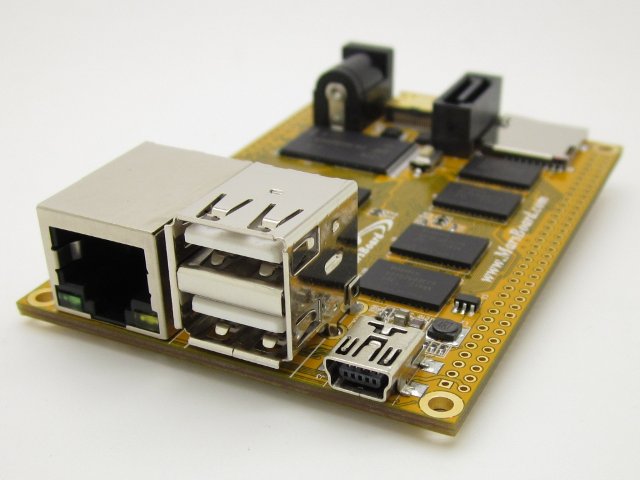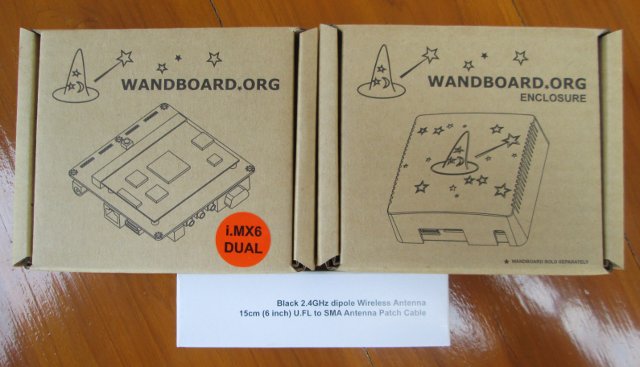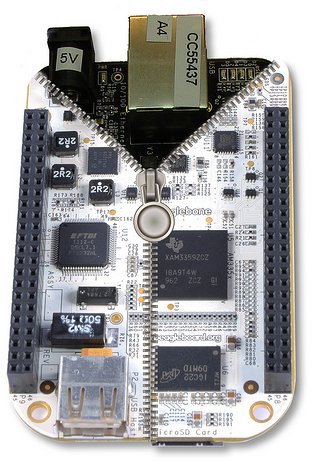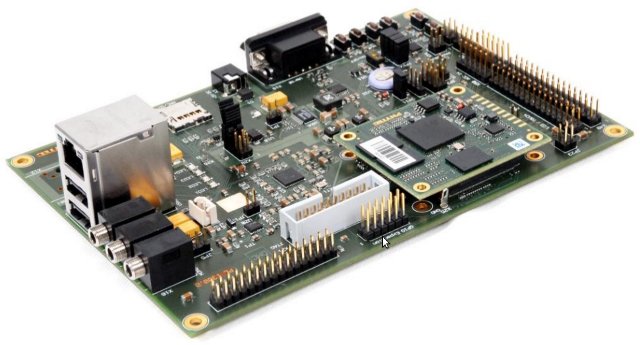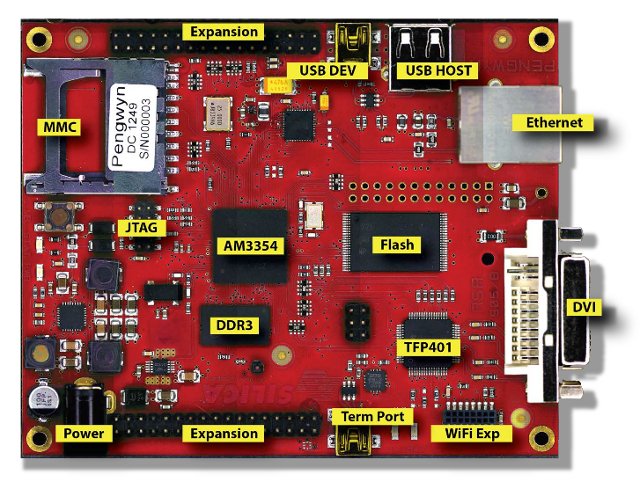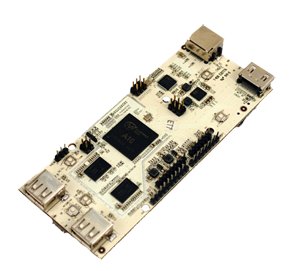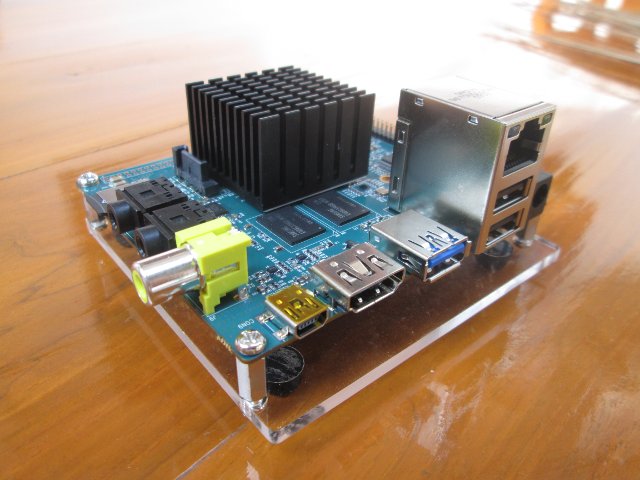After the tablet based Gooseberry and Hackberry boards, as well as Cubieboard and the upcoming A10-Olinuxino development boards, here’s another development board based on AllWinner A10 called the MarsBoard that looks very similar to the Cubieboard. Here are the key features of the board: SoC – AllWinner A10 Cortex A8 @ 1 GHz + Mali-400 GPU System Memory – 1GB DRAM Storage – 4GB Flash + 1x microSD card (up to 32GB) Video Output – HDMI Audio Output – 3.5mm stereo jack USB – 2x USB host port + 1x microUSB Connectivity – 10/100 M Ethernet SATA Connector Headers – 2x 2.0mm GPIO headers. (140 pins in total) Power Supply Requirements – 5V/2A Dimensions – 80mm x 55mm There’s also a 3.5mm jack but I’m not sure if it’s just for audio in or out, or for composite output. The website is still in construction (basically a modified copy of […]
mbed 2.0 SDK Released, becomes Open Source and Supports $12.95 Freescale Freedom Board
The mbed community has had a pretty busy week, with first the announcement that mbed SDK would become open source, the release of mbed 2.0, and finally support for the low cost Freescale Freedom board FRDM-KL25Zpowered by Kinetis Cortex M0+ KL25Z MCU. mbed becomes open source The mbed Software Development Kit (SDK), a C/C++ MCU software platform, has always been free (as in free beer) for both commercial and noncommercial use, and the large community around mbed has written tons of code for ARM microcontrollers. But now that the SDK has now a stable API, and the developers achieved transparent portability for code based on the SDK across multiple controllers and multiple toolchains, they decided to release the SDK source under an Apache 2.0 license. Although sharing modifications is encouraged, this license allows users to keep the changes closed if they wish to do so. mbed developers explain that the 3 […]
Wandboard Dual Unboxing and Quick Start Guide
I’ve just received Wanboard Dual development board together with an enclosure, and Wi-Fi antenna. This board is powered by Freescale i.MX6 Duallite Cortex A9 processor, and comes with 1GB RAM, HDMI output and Ethernet. There’s also a version based on Freescale i.MX6 Solo with 512 MB RAM. You can refer to my earlier post for more detailed specifications. I’ll start by showing some unboxing pictures of the board, and write a quick start guide (casing assembly, Ubuntu & Android boot, and development). I also planned to run some benchmarks and test videos, as according to a poll on Wandboard website many people want to use it as a media player, but I’ll do that a bit later since the current Android image is not up to the task yet. Wandboard Dual Unboxing The package I received contained 3 boxes: one for Wandboard Dual board, one for the enclosure, and one for […]
A New, Faster, and Cheaper Beaglebone is On its Way
Beaglebord.org community is currently teasing a new Beaglebone on their website. At this time information is not complete, but we already know it will be “significantly cheaper” than the existing Beaglebone, feature a processor with higher performance (Albeit the picture shows TI Sitara AM3359 which is about the same as AM3358 + Ethercat), and come with 512 MB DDR3L RAM (instead of 256 MB DDR2), 2GB eMMC Flash, and onboard HDMI output. The new Beaglebone will keep supporting Angstrom, Ubuntu and other Linux distributions. Hardware expansion boards (cape) designed for the old model will still be fully compatible with the new Beaglebone. You’ll need to wait April to get hold of the new Beaglebone. Until then, you can register your interest on Element14/Farnell to be informed when the board becomes available. Another way to find out more is to attend the Embedded Linux Conference 2013 which is taking place right […]
Phytec India Unveils “Open Board-AM335x” Development Kit
PHYTEC has launched the Open Board-AM335x development kit in order to support Linux and Android development on Texas Instruments AM335x Sitara ARM Processors in India. The Open Board-AM335x is comprised of a baseboard and phyCORE-AM335x SoM, and comes with 512 MB DDR3 SDRAM, 512 MB NAND Flash, and optionally, 8 MB SPI Flash. The baseboard is open source hardware as schematics and Gerber/BOM are freely available. Here are the key features of Phytec Open Board-AM335x: SoM – PhyCore-AM335x with ARM Cortex-A8 processors @ 720 MHz (AM3352, AM3354, AM3356, AM3357, AM3358 and AM3359) System Memory – 512 MB DDR3 RAM Storage – 512 MB NAND + SD Card slot + 8 MB SPI NOR Flash (Optional) + 32 KB EEPROM (Optional) Serial – 1x UART (RS232) + 4x UART (TTL) USB – 1x USB Host + 1x USB OTG Connectivity – 1x 10/100/1G Ethernet Audio – WM8974 Codec Display Interfaces – 24 bpp TTL […]
SILICA Pengwyn Low Cost Open Industrial Development Platform Powered by Sitara AM3354 Processor
At the end of January, SILICA, an Avnet subsidiary, announced the Pengwyn, a single board computer based on Texas Instruments Sitara AM3354 Cortex A8 processor. The board targets industrial customers, and the company promotes it as “an open platform to develop applications under Linux or Windows Embedded operating systems”. Here are the specifications of the Pengwyn board: Texas Instruments Sitara AM 3354 ARM Cortex-A8 MCU @ 720 MHz System Memory – 256 MB DDR3 Storage – 1 GB Nand Flash, 32 MB SPI Flash Memory, and microSD slot (if not used with Wi-Fi/Bt modules) Connectivity and expandability USB Host and Device Ports RJ-45 Ethernet Port Connector for optional 1 GB Ethernet Port 2x connectors for generic expansions modules SDIO/MMC Port (can be used for optional WI-FI/bluetooth modules) DVI Display Port Silica will provide Linux (Arago Project, an OpenEmbedded based Distribution) and Windows Embedded Compact 7 BSP and images, as well as […]
$59 pcDuino – AllWinner A10 Board with Arduino Compatible Headers
pcDuino is a new development board based on AllWinner A10 Cortex A8 SoC that comes with 1GB RAM and 2GB NAND Flash, HDMI output, as well as USB and Ethernet RJ45 ports, and is said to feature 2.54mm pin headers compatible with Arduino boards. Here are the pcDuino specifications: SoC – AllWinner A10 ARM Cortex A8 CPU @ 1GHz + Mali-400 GPU System Memory – 1GB DRAM Storage – 2GB Flash + SD card slot for up to 32GB Video Output – HDMI USB – 2x USB 2.0 Host Connectivity: Ethernet – 10/100 Mbps (RJ45) Wi-Fi – Via USB Wi-Fi dongle (not included with the board) Headers – 2.54mm pin headers: 1x UART, 6x ADCs, 2x PWMs up to 24MHz, 14x GPIOs, 1x I2C and 1x SPI. Power Supply – 5V/2A Dimensions – 125mm x 52mm The board comes preloaded with Ubuntu 12.10, but it also supports Android 4.0 ICS. […]
ARMBRIX Zero Cortex A15 Development Board Unboxing Pictures
I’ve just received an early sample of ARMBRIX Zero (aka ARMBRIX-5250-A), a development board based on Samsung Exynos 5250 dual cortex A15 processor with 2GB RAM, a microSD slot, 1x USB 3.0, 2x USB 2.0 Host, 1x USB Device, 10/100 Ethernet, HDMI output, SATA 3.0, some Audio I/O ports, and 3 expansions headers. This is basically a low cost version of the Arndale board, with things such as eMMC 4.5 (Sorry I’ve missed the eMMC socket at the back of the board) sensors missing. Today, I won’t turn the board on (I’ll explain why at the end of the post), but instead show some pictures of the development and debug boards. If you had previously seen the board picture before, you’ll noticed it has a grown a heatsink. The heatsink is probably here to stay, but may be slightly different (e.g. lower) when you receive your board. The bottom acrylic […]


